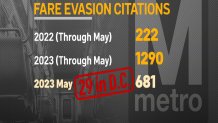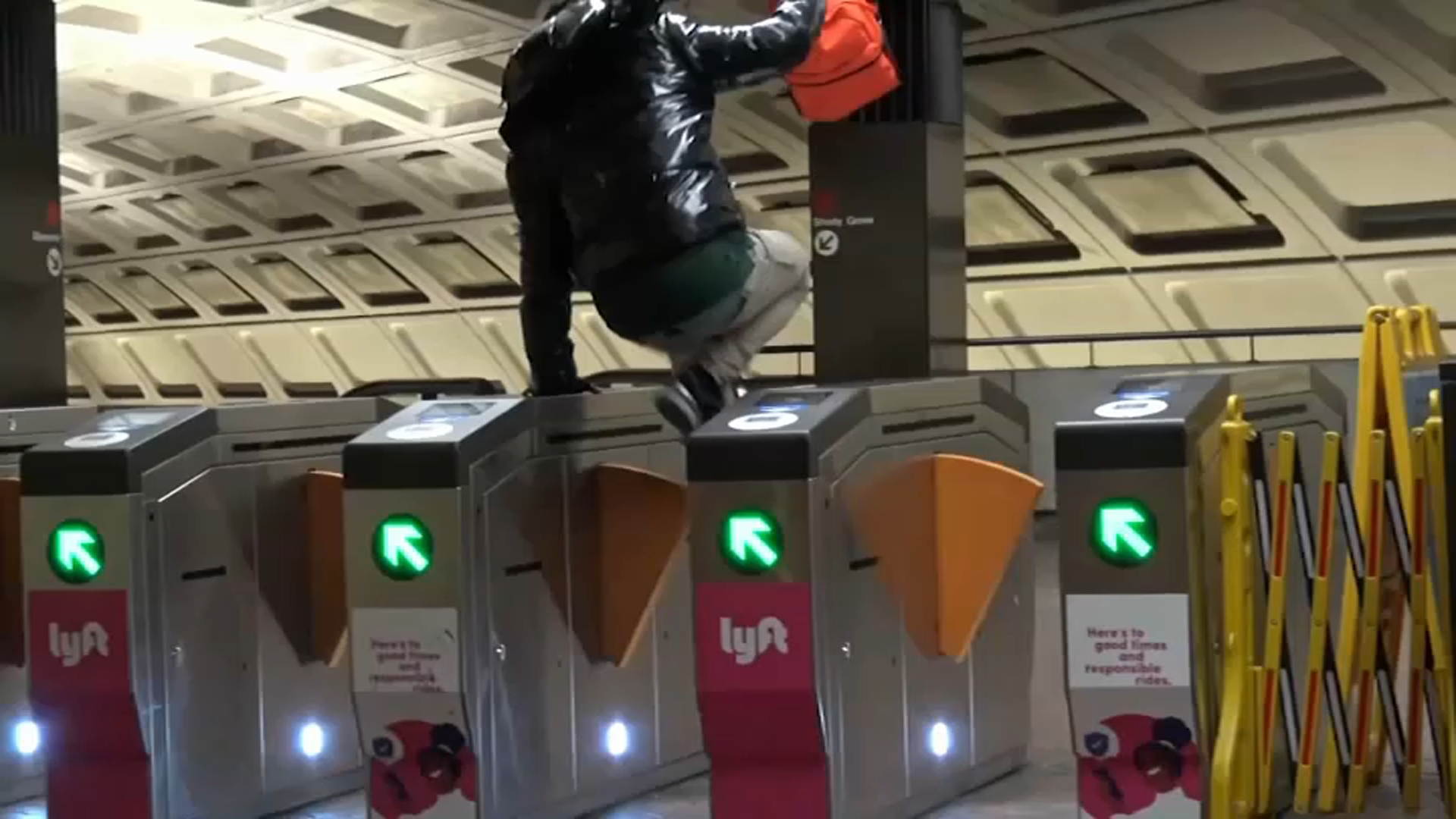The News4 I-Team found a persistent D.C.-shaped hole in Metro’s ongoing fare evasion crackdown efforts. Now there’s a new effort aimed at closing it.
The I-Team has tracked Metro fare evasion citations for months. Metro’s CEO pledged an increase in citations late last year and agency data shows enforcement is way up this year over last. Despite the increase, citations in the District of Columbia are still far behind those in Maryland and Virginia.
Metro statistics show a nearly 600% increase in the number of citations issued for Metro fare evasion in the first five months of 2023. In May alone, officers patrolling the transit system issued 681 fare evasion citations. An I-Team analysis however found just 29 of those citations were issued in D.C. itself – despite Metro’s insistence that the vast majority of fare evasion happens in the District.

We're making it easier for you to find stories that matter with our new newsletter — The 4Front. Sign up here and get news that is important for you to your inbox.
Metro has not replied to repeated requests for explanation or an interview over the past two weeks.
D.C. Council member Brooke Pinto wants to make it easier to enforce fare evasion in D.C. Pinto, the chair of D.C.’s Judiciary and Public Safety Committee, introduced a new bill she says will close a persistent loophole and could cut violent crime on the system.
Pinto explained to the I-Team current D.C. law makes it easy to evade a fare evasion ticket.
“Right now, if somebody jumps the turnstile and transit police say, ‘Hey, you can't do that. I need your name,’ the person can just walk away from them,” Pinto said.
Under her proposed bill, offenders must give officers their name and address (not necessarily an ID). If not, they can be detained and possibly face a fine of $100, twice the current $50 fare evasion fine in D.C.
Maryland and Virginia already have tougher fare evasion laws.
Metro CEO Randy Clarke backs the bill, believing it will increase enforcement further, saying in a letter to Pinto, “When (Metro) increases fare enforcement, our Part I (serious) crime number is lower,” adding, “the vast majority of persons who commit criminal acts within Metro fare evade.”
Pinto shared Clarke’s sentiment.
“I believe we will be more successful in stopping some of the violent crime when we could have an enforcement mechanism for fare evasion,” she said.
The bill is likely headed for a D.C. Council hearing later this summer. If it passes, fare evasion would still be a civil penalty in D.C. The D.C. Council voted to decriminalize fare evasion in 2018.
Former mayor and Councilman Vincent Grey and Council Chairman Phil Mendelson support the bill.
Plenty of people in D.C. believe Metro should be free, especially for low-income riders. The I-Team heard from them reporting on the start of the fare evasion crackdown months ago.
The D.C. Council decided not to move toward that with a free bus plan this year but will soon give discounts to SNAP recipients.
Pinto also said she wants to make it easier for young people to access their free passes, which are already available.
Reported by Ted Oberg, produced by Rick Yarborough and Katie Leslie, and shot and edited by Steve Jones.
Sign up for our Breaking newsletter to get the most urgent news stories in your inbox.


